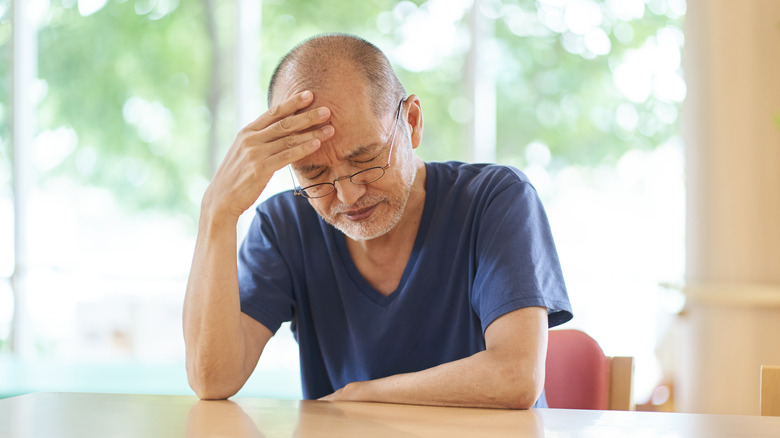Why Your Headaches Might Be More Serious Than You Think
Headaches are a common ailment that most people experience from time to time. Although you shouldn't worry when you get the occasional throbbing temple, there are signs that your headaches might be serious. According to Harvard Health Publishing, there are over 300 types of headaches and only about 10% of them have a clear cause. This can make it difficult to know whether or not you should be concerned about the underlying cause of yours.
However, some headaches have clear signs that something is wrong. You should seek medical care if your headache feels abnormal, more severe than usual, or comes with other symptoms like fever or confusion. If your headaches get increasingly worse over time or first begin developing after the age of 50, you should also be concerned. Generally, any headache that makes you feel like something is off is a good reason to schedule a visit with your doctor. Even if it ends up being nothing, you'll have the peace of mind to know that you don't have any underlying health conditions to worry about.
How to treat a headache
If you need to visit a doctor because of a headache, they will help you find the best treatment. If you experience a normal headache that doesn't require special medical care, there are a few things you can do to help yourself feel better quickly. While taking over-the-counter medication can definitely manage your symptoms, it is recommended that you avoid medication when possible (via Good Housekeeping). "It can induce something called medication overuse headaches, where too much medication actually induces more frequent headaches and makes the patient resistant to other treatments," said Lawrence Newman, MD, a neurologist and director of the Headache Division at NYU Langone Health in New York City.
Instead of grabbing a pill bottle, reach for a cup of tea or coffee. Caffeine can help ease pain caused by headaches, which is why it's found in some headache medications. You can also try putting an ice pack or heat pack on your head, which may ease your symptoms. Avoiding what triggers your headaches, like dehydration or stress, can also help you feel better.


